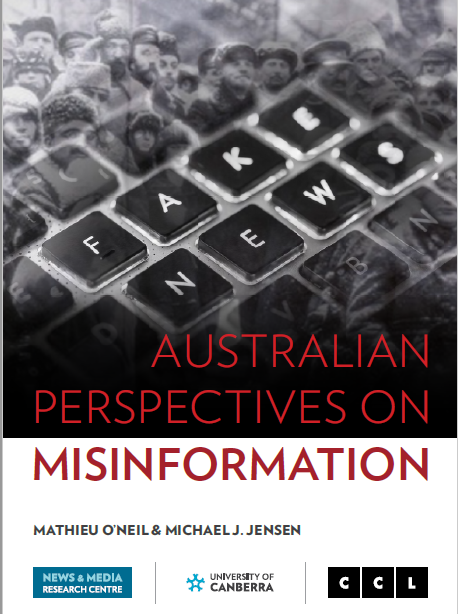Australian Perspectives on Misinformation
Summary
Concerns about the health of democracy and the public sphere are increasing due to the ease with which malign actors can spread misleading and manipulative claims. Misinformation, or misleading information spread unwittingly, is often distinguished from disinformation, which is misleading information spread with the intent to cause harm. Yet many successful disinformation campaigns contain true information, covertly disseminated to embarrass political targets: the quality of the information matters less than the nature of the operation it is part of. Although the content of messages need not be false to deceive, the ability to identify and protect true claims remains critically important.
Misinformation and disinformation and their effects are complex and interwoven with countless socio-political and psychological issues. The Australian Perspectives on Misinformation, the Critical Conversations Lab’s inaugural report, brings together several sources of data and a wide array of points of view, highlighting the Lab’s networked approach to the research process. The background of the report is the results from two existing N&MRC reports: Digital News Report: Australia 2020 and COVID-19: Australian News and Misinformation report, both of which tracked perceptions of misinformation in the Australian news consumers in 2020. The report next profiles two case studies: an analysis of campaigns by Russian Internet Research Agency “troll” accounts on in the Australian Twittersphere in the leadup to the 2016 Australian Federal election, and an interview with a young ABC Digital journalist about how misinformation affects her work practice. The final chapter replaces misinformation in a historical context and reviews psychological and networked communication approaches to countering it. The report also features expert comments by three leading Australian journalists and researchers. Finally, the report relays a set of practical messages to help teachers and politicians communicate about information literacy and outlines a series of hypothetical steps for how people might establish a fact-based common understanding with a conspiracy believer.
Authors
Mathieu O’Neil is Associate Professor at the News & Media Research Centre where he leads the Critical Conversations Lab and Honorary Associate Professor of Sociology at the Australian National University. He conducts network and content analyses of environmental and health controversies in the online environment and also researches commons-based peer production, most recently thanks to a Sloan and Ford Foundations Critical Digital Infrastructure grant. He is the lead editor of the Handbook of Peer Production (Wiley Handbooks in Communication and Media, in press).
Michael J. Jensen is Associate Professor at the Institute for Governance and Policy Analysis and a core member of the News & Media Research Centre. He has a background in political communication and has published books with Cambridge University Press and Palgrave on online political behaviour. His work concerns the use of digital communication technologies in the development of new forms of political organization within political campaigning and protest movements.
Contents
1. Divided they perceive: Australians and misinformation
- Mathieu O’Neil, N&MRC, UC
- Michael J. Jensen, IGPA / N&MRC, UC
- Jee Young Lee, N&MRC, UC
Commentary: A few words on misinformation and media
- Chris Zappone, The Age
2. Internet Research Agency campaigns in the Australian Twittersphere: Excerpts from Submission to the Senate Select Committee on foreign interference through social media
- Robert Ackland, Virtual Observatory for the Study of Online Networks / School of Sociology, Australian National University
- Michael J. Jensen, N&MRC, UC
- Mathieu O’Neil, N&MRC, UC
Commentary: The social media infodemic and the “filter bubble” fallacy
- Axel Bruns, Digital Media Research Centre, Queensland University of Technology
3. How misinformation affects an Australian journalist’s work
- Interview with Kelsie Iorio, ABC Digital by Mathieu O’Neil, N&MRC, UC
Commentary: Elite actors, misinformation and hashtag campaigns: #ArsonEmergency and #DanLiedPeopleDied
- Timothy Graham, Digital Media Research Centre, Queensland University of Technology
4. Addressing conspiratorial beliefs: A critical history of misinformation
- Mathieu O’Neil, N&MRC, UC
- Michael J. Jensen, IGPA / N&MRC, UU
Launch
The report was launched in the presence of the authors and contributors on November 11, 2020 as part of the Faculty of Arts and Design #FADfest20.
Watch the launch here
Interview
Mathieu O'Neil appeared on ABC's Late Night Live with Philip Adams on November 18, 2020, in a segment called “Fact, fiction or fake: How Australians perceive their news.”
To listen to this interview, click here.


